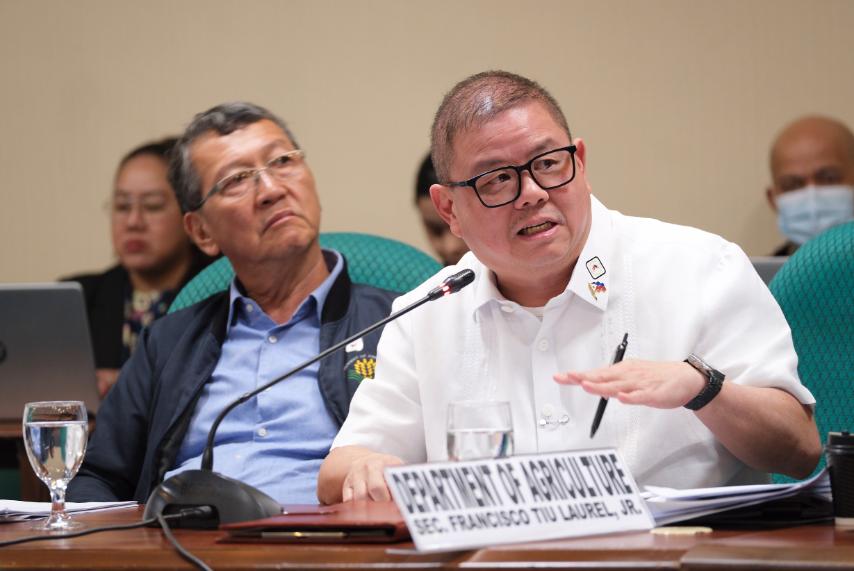
By Dean Aubrey Caratiquet
Consistent with the Marcos Jr. administration’s objective of ensuring that Filipinos have equitable access to affordable and quality rice, the Department of Agriculture (D.A.) has been making significant strides in keeping the staple grain readily available for mass consumption.
In a Senate Committee on Agriculture hearing on Wednesday, Agriculture Secretary Francisco Tiu-Laurel Jr. outlined a set of amendments to the Rice Tariffication Law (RTL) in a bid to protect the country’s rice industry and serve the best interests of farmers, millers, consumers, and other stakeholders.
Secretary Tiu-Laurel emphasized that these recommendations are formulated to improve food security and quash unregulated rice imports that eat into the profits of farmers nationwide, “This should provide opportunities to lower costs and improve efficiency, which would lead to increased rice production and improved food security.”
The seven pillars brought into focus during the hearing were as follows:
- Restoring calibrated state intervention in the market
- Integrating the budgets for Rice Competitiveness Enhancement Fund (RCEF) and the National Rice Program
- Rebuilding a nationwide extension support system
- Balancing consumer welfare with farmer protection
- Sustaining domestic production and planting intentions
- Modernizing and rebuilding the National Food Authority (NFA)
- Providing meaningful incentives to all players in the rice value chain
Moreover, the Agriculture czar expressed concern over the growing consumer preference for imported rice, worried that this trend may trigger a collapse in palay prices, potentially forcing rice millers to shut down operations and shift to importation.
Secretary Tiu-Laurel Jr. stressed that such a scenario could devastate local rice production and food self-sufficiency, “This could send palay prices crashing, and rice millers shutting their facilities and just resorting to importing.”
Beyond restoring the NFA’s regulatory and market intervention powers, Tiu Laurel said it is equally critical to ensure that public investments in rice translate into better outcomes for farmers.
jpv
